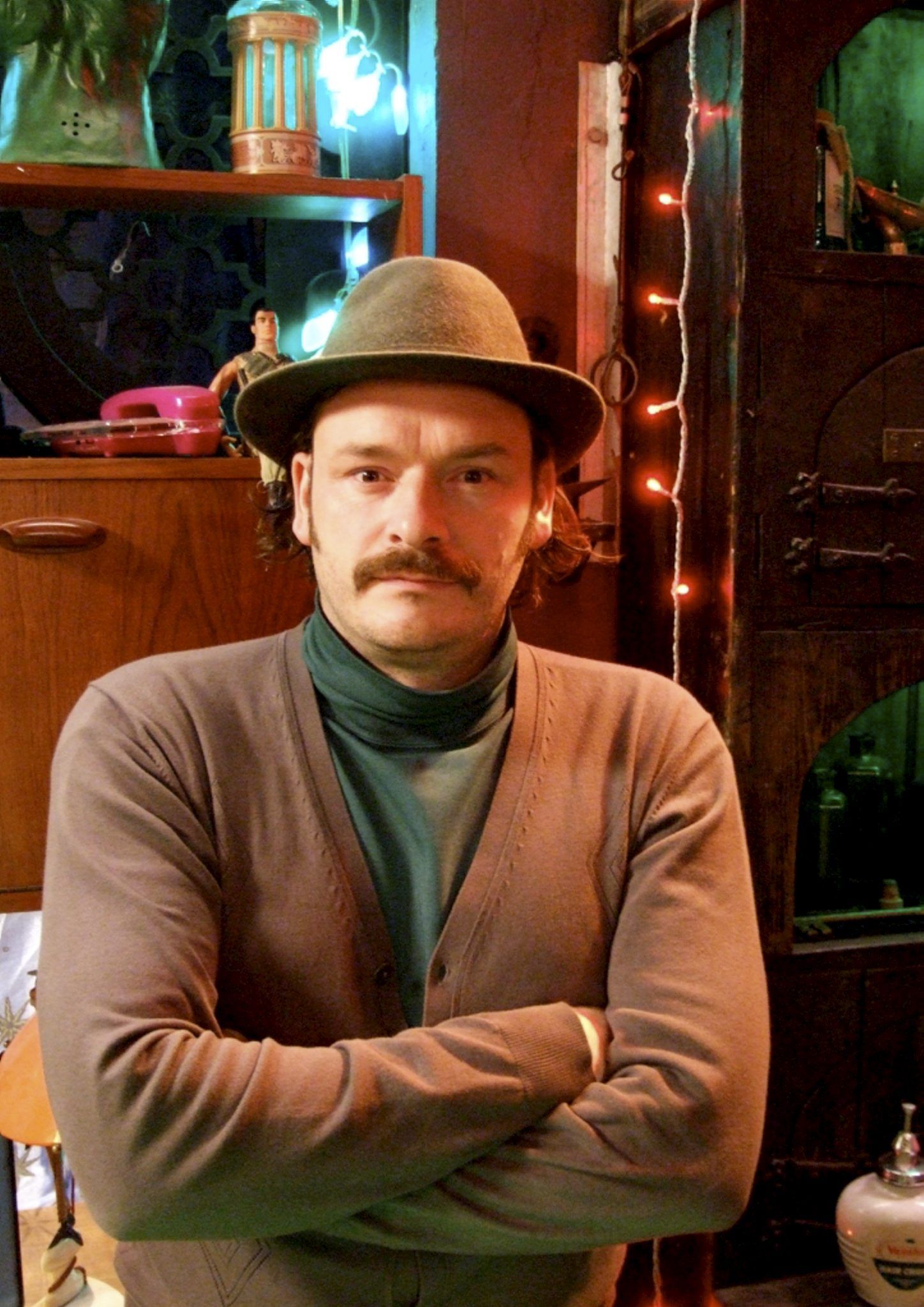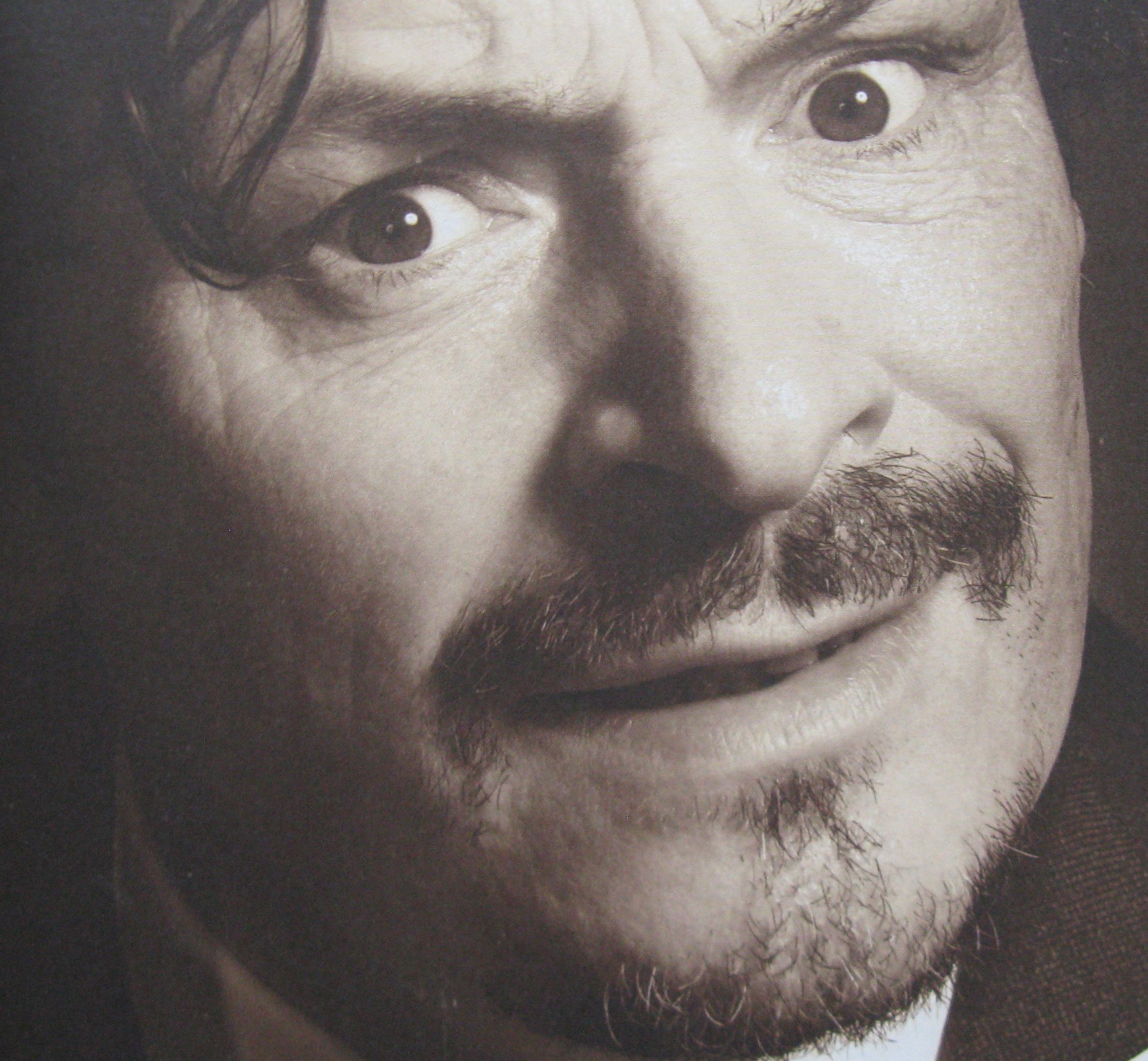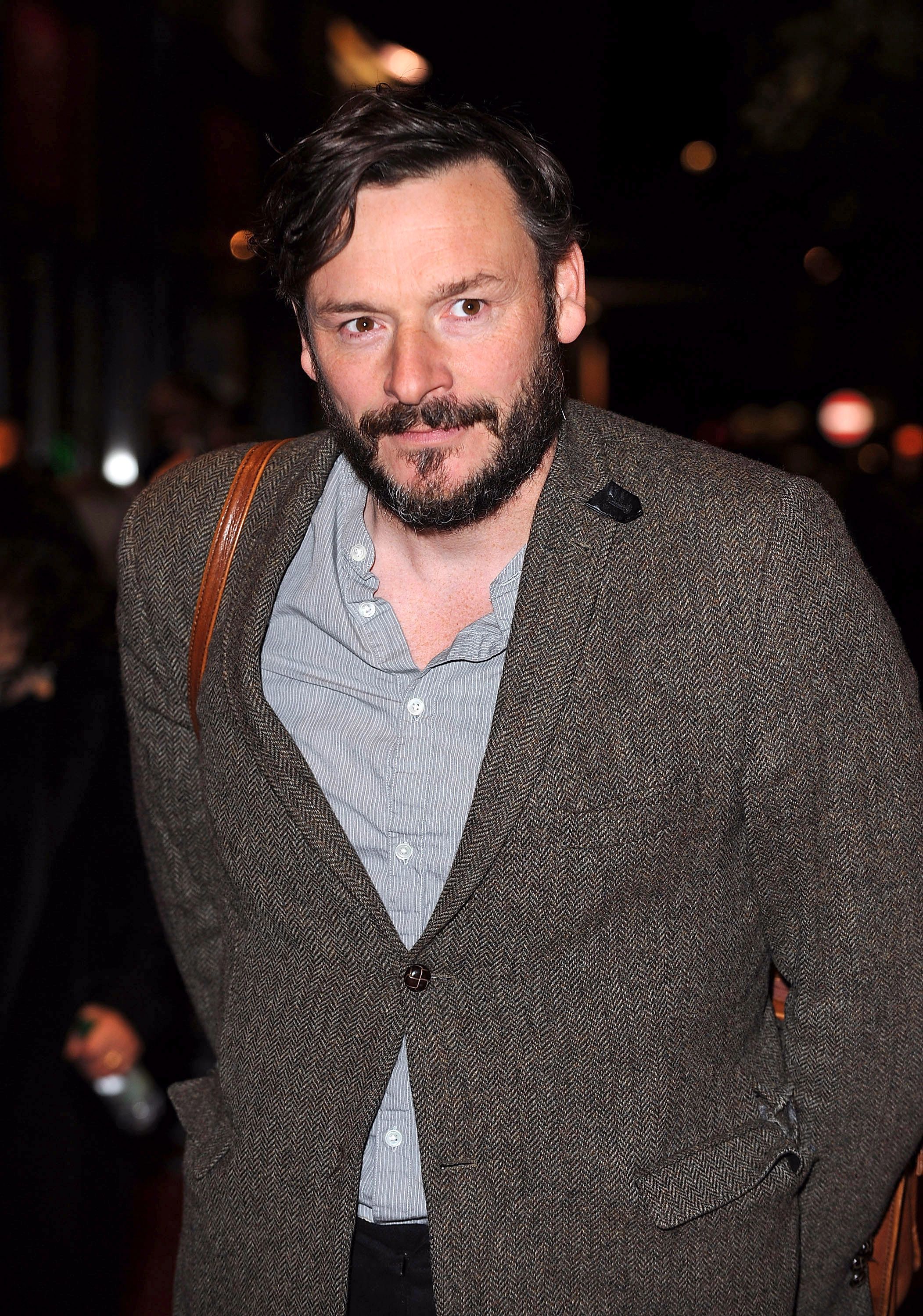In the vast and often predictable landscape of contemporary comedy, certain figures emerge who defy easy categorization, carving out a unique niche with their distinctive vision and unparalleled creativity. Julian Barratt is unequivocally one such artist. Renowned for his surreal humor, musical prowess, and captivating stage presence, Barratt has left an indelible mark on British comedy and entertainment, influencing a generation of performers and captivating audiences worldwide with his whimsical and often profound work.
From his iconic role as Howard Moon in the cult phenomenon "The Mighty Boosh" to his diverse acting roles and musical endeavors, Julian Barratt consistently demonstrates a rare blend of comedic genius, artistic integrity, and a willingness to explore the boundaries of performance. This article delves into the multifaceted career of a true original, exploring his journey, his most significant contributions, and the enduring legacy of his unique artistic voice.
Please note: The "Data Kalimat" provided for this article pertains to the town of Julian, California, a historic gold mining town. As this information is entirely unrelated to the artist Julian Barratt, it has not been incorporated into this biographical and career overview. This article focuses solely on the life and work of Julian Barratt, the British actor, comedian, and musician.
- Teddy Swims Life Story
- Shirley Jones Actress
- Joe Gilgun Wife
- Daniel Sunjata Married
- Outlander Jamie Actor
Table of Contents
- Julian Barratt: Early Life and Formative Years
- Personal Details: Julian Barratt
- The Mighty Boosh: A Cultural Phenomenon
- Beyond The Boosh: Versatility in Acting
- Solo Music and Collaborative Projects
- A Unique Style: The Essence of Julian Barratt's Artistry
- The Creative Process and Collaboration
- Impact on Contemporary Comedy and Culture
Julian Barratt: Early Life and Formative Years
Born Julian Barratt on May 4, 1968, in Leeds, West Yorkshire, England, his journey into the world of performance began far from the bright lights of London stages. His early life laid the groundwork for a creative mind that would eventually blossom into one of the most distinctive voices in British comedy. Barratt attended the University of Reading, where he studied art. It was during his time at university that his passion for performance and comedy began to take shape, though perhaps not in the conventional sense. Before achieving widespread recognition, Julian Barratt honed his craft in various capacities, often in the vibrant, experimental fringes of the UK comedy scene. He was involved in several early projects, often collaborating with other emerging talents. These formative experiences, characterized by a spirit of improvisation and a willingness to push boundaries, were crucial in shaping the surreal and often musical style that would become his hallmark. It was in these early days that he would meet Noel Fielding, a partnership that would prove to be one of the most creatively fertile in modern British comedy. Their shared sensibilities and complementary styles laid the foundation for what would become their most famous collaboration.Personal Details: Julian Barratt
| Full Name | Julian Barratt |
| Date of Birth | May 4, 1968 |
| Place of Birth | Leeds, West Yorkshire, England |
| Nationality | British |
| Occupation | Actor, Comedian, Musician, Writer |
| Known For | "The Mighty Boosh" (Howard Moon), "Nathan Barley", "Mindhorn" |
| Spouse | Julia Davis (m. 2007) |
| Children | 2 |
The Mighty Boosh: A Cultural Phenomenon
For many, the name Julian Barratt is synonymous with "The Mighty Boosh." This surreal comedy troupe, co-created with Noel Fielding, began as a series of stage shows before transitioning to radio and eventually a highly acclaimed television series that ran for three seasons from 2004 to 2007. "The Mighty Boosh" was not just a comedy show; it was a universe unto itself, populated by eccentric characters, fantastical landscapes, and a unique blend of absurdism, music, and whimsical storytelling. Barratt's portrayal of Howard Moon, the jazz-loving, intellectual, and often insecure foil to Noel Fielding's flamboyant Vince Noir, became an iconic character in British comedy. Howard's earnest attempts at sophistication, constantly undermined by his own neuroses and the chaotic world around him, provided endless comedic opportunities. The dynamic between Barratt and Fielding was the heart of the show, a perfect comedic pairing that allowed their individual strengths to shine while creating something truly original.Origins and Evolution of the Boosh
The genesis of "The Mighty Boosh" can be traced back to the late 1990s, when Julian Barratt and Noel Fielding first met on the London comedy circuit. They quickly discovered a shared comedic sensibility and began performing together. Their early stage shows, such as "The Mighty Boosh" (1998) and "Arctic Boosh" (1999), garnered critical acclaim and a dedicated cult following, winning awards like the Perrier Award for Best Newcomer at the Edinburgh Fringe Festival. The transition to radio in 2001, with "The Boosh" on BBC Radio 4, further refined their style and expanded their world. This laid the groundwork for the television series, which allowed their visual creativity to fully flourish. The show's distinctive aesthetic, characterized by vibrant costumes, elaborate sets, and often rudimentary but charming special effects, became as much a part of its appeal as its bizarre narratives. Each episode was a self-contained adventure, yet all were connected by the overarching mythology of the Boosh universe, where talking animals, evil zookeepers, and interdimensional travel were commonplace. Julian Barratt's commitment to character and his ability to ground the most outlandish scenarios in relatable human emotion were key to the show's success.Musical Contributions to The Mighty Boosh
One of the most distinctive elements of "The Mighty Boosh" was its pervasive musicality. Julian Barratt, a talented musician and composer, was largely responsible for the show's memorable songs and scores. From jazz-infused numbers to psychedelic rock anthems and quirky folk tunes, the music was integral to the show's identity, often serving as a narrative device or a punchline in itself. Barratt's musical background, including his time in bands like "Little Chief," clearly informed his work on the show. He composed and performed many of the songs, often incorporating different genres and styles to create a truly eclectic sound. Tracks like "Electro Boy," "The Hitcher," and "Love Games" became fan favorites, demonstrating his versatility as a composer and performer. The music not only added another layer of humor and atmosphere but also showcased Barratt's serious musical talent, elevating the show beyond mere sketch comedy into a unique theatrical experience. His ability to seamlessly blend comedy with intricate musical arrangements is a testament to his unique artistic vision.Beyond The Boosh: Versatility in Acting
While "The Mighty Boosh" remains his most recognized work, Julian Barratt's career extends far beyond the confines of the Boosh universe. He has demonstrated remarkable versatility as an actor, taking on a diverse range of roles in film, television, and theatre, often showcasing a dramatic depth that might surprise those familiar only with his comedic persona. His notable television appearances include his role as Dan Ashcroft in Chris Morris's satirical comedy "Nathan Barley" (2005), where he played a cynical, disillusioned journalist. This role allowed him to explore a more grounded, albeit still darkly comedic, character. He also appeared in the critically acclaimed drama "Flowers" (2016-2018), where he played Maurice, a depressed children's author. This role, in particular, highlighted his ability to portray complex emotional states with nuance and sensitivity, earning him praise for his dramatic performance. In film, Barratt has taken on various roles, from the lead in the independent comedy "Mindhorn" (2016), which he also co-wrote, to supporting roles in larger productions. "Mindhorn" saw him play a washed-up actor who once starred as a detective with a bionic eye, now called upon to help solve a real-life crime. The film was a showcase for his unique comedic timing and his ability to craft a character that is both absurd and strangely endearing. His filmography also includes appearances in "Bunny and the Bull" (2009), "A Field in England" (2013), and "The Current War" (2017), demonstrating his range across different genres and production scales. Julian Barratt consistently seeks out roles that challenge him and allow him to explore different facets of his acting ability.Solo Music and Collaborative Projects
Beyond his work in comedy and acting, Julian Barratt has maintained a strong connection to music, often pursuing solo projects and collaborations that further highlight his compositional and performance talents. While "The Mighty Boosh" offered a significant platform for his musical output, his other ventures demonstrate a more focused exploration of his sonic interests. He has composed scores for various projects, showcasing his ability to create atmospheric and evocative soundscapes. His work often features a distinctive blend of jazz, experimental rock, and electronic elements, reflecting his eclectic musical tastes. Barratt has also contributed to soundtracks and collaborated with other musicians, often under the radar, away from the mainstream spotlight. These projects allow him to delve deeper into the technical and artistic aspects of music production, free from the demands of comedic narrative. His commitment to music underscores his identity as a multidisciplinary artist, where each creative outlet informs and enriches the others.A Unique Style: The Essence of Julian Barratt's Artistry
What truly sets Julian Barratt apart is his utterly unique artistic style. It's a blend of highbrow intellectualism and lowbrow silliness, often veering into the surreal, the absurd, and the deeply whimsical. His work is characterized by a distinctive visual aesthetic, an unconventional narrative structure, and a pervasive musicality. He has a remarkable ability to create characters that are simultaneously ridiculous and profoundly human, often imbued with a melancholic charm. Barratt's humor often derives from the juxtaposition of the mundane with the fantastical, the logical with the utterly illogical. He crafts worlds where anything is possible, yet the characters within them grapple with surprisingly relatable anxieties and aspirations. This blend of the fantastical and the familiar is a hallmark of his approach, inviting audiences to suspend disbelief while still connecting on an emotional level.A Distinctive Voice in Comedy
Julian Barratt's comedic voice is instantly recognizable. It's often characterized by a deadpan delivery, a penchant for intricate wordplay, and a deep understanding of comedic timing. He masterfully uses pauses, facial expressions, and physical comedy to enhance his performances, often conveying more through a subtle glance than through dialogue. His characters, whether Howard Moon or others, often possess a certain earnestness that makes their absurd predicaments even funnier. He is not afraid to experiment with form and structure, pushing the boundaries of what comedy can be. His work often incorporates elements of theatre, music, and performance art, blurring the lines between different artistic disciplines. This adventurous spirit has earned him a reputation as an innovator, someone who consistently challenges conventions and seeks to create something truly original. His influence can be seen in a new generation of comedians who embrace surrealism and a more artistic approach to humor.Legacy in British Comedy
The legacy of Julian Barratt, particularly through "The Mighty Boosh," is profound. The show became a cultural touchstone, inspiring countless memes, catchphrases, and a dedicated fanbase that continues to celebrate its unique vision years after its conclusion. It opened doors for a more experimental, visually driven form of comedy on mainstream television, proving that there was an audience for intelligent, off-kilter humor. Beyond the Boosh, Barratt's continued work in various capacities reinforces his status as a respected and influential figure. He has demonstrated that an artist can maintain their distinctive voice while exploring different mediums and genres. His commitment to creative integrity over commercial appeal has made him a role model for aspiring performers. Julian Barratt's contribution to British comedy is not just about the laughs he provides, but about the imaginative worlds he builds and the artistic freedom he champions.The Creative Process and Collaboration
Julian Barratt's creative process often involves deep collaboration, particularly with long-time creative partner Noel Fielding. Their synergy was evident in "The Mighty Boosh," where ideas would bounce between them, evolving into the bizarre narratives and characters that defined the show. Barratt often took on the role of the more grounded, musically inclined, and structurally minded half of the duo, providing a necessary anchor to Fielding's more free-associative flights of fancy. Beyond Fielding, Barratt has collaborated with a range of talented individuals, from writers and directors to musicians and visual artists. This collaborative spirit is crucial to his work, allowing him to integrate diverse perspectives and talents into his projects. He is known for his meticulous approach to character development and his dedication to crafting detailed, immersive worlds, even within the most outlandish comedic scenarios. This attention to detail, combined with his willingness to embrace spontaneity, is a hallmark of his artistic method. His work is a testament to the power of creative partnership and the magic that can emerge when like-minded artists come together.Impact on Contemporary Comedy and Culture
Julian Barratt's impact on contemporary comedy and broader popular culture is undeniable. "The Mighty Boosh" created a template for surreal, character-driven comedy that resonated deeply with a generation. Its influence can be seen in the work of many subsequent comedians and sketch artists who embrace the absurd, the musical, and the visually striking. The show's distinctive aesthetic and narrative style paved the way for more experimental comedy on television, proving that there was a significant appetite for content that dared to be different. Furthermore, Julian Barratt's career exemplifies the journey of an artist committed to their unique vision. He has consistently chosen projects that align with his artistic sensibilities, rather than simply chasing mainstream success. This integrity has earned him respect within the industry and a loyal following among audiences who appreciate his distinctive brand of humor and artistry. His contributions have enriched the landscape of British entertainment, proving that originality and creativity can thrive even in a commercial environment. His work continues to be discovered by new audiences, cementing his place as a truly influential figure.Conclusion
Julian Barratt stands as a towering figure in contemporary British comedy and entertainment, a true polymath whose talents span acting, writing, music, and performance. From the groundbreaking surrealism of "The Mighty Boosh" to his nuanced dramatic roles and his enduring musical endeavors, Barratt has consistently pushed artistic boundaries, captivating audiences with his unique blend of wit, whimsy, and profound originality. His ability to create characters that are both absurd and deeply human, and to build worlds that are fantastical yet emotionally resonant, is a testament to his exceptional talent. His legacy is not just in the laughter he has provoked, but in the imaginative landscapes he has conjured and the artistic freedom he embodies. Julian Barratt remains a vital and inspiring force, a reminder that true creativity knows no bounds. We encourage you to explore the diverse body of work of Julian Barratt, from his iconic comedic performances to his more serious dramatic turns and his captivating musical compositions. What are your favorite Julian Barratt moments or characters? Share your thoughts in the comments below, and consider exploring more of our articles on influential figures in comedy and the arts!

